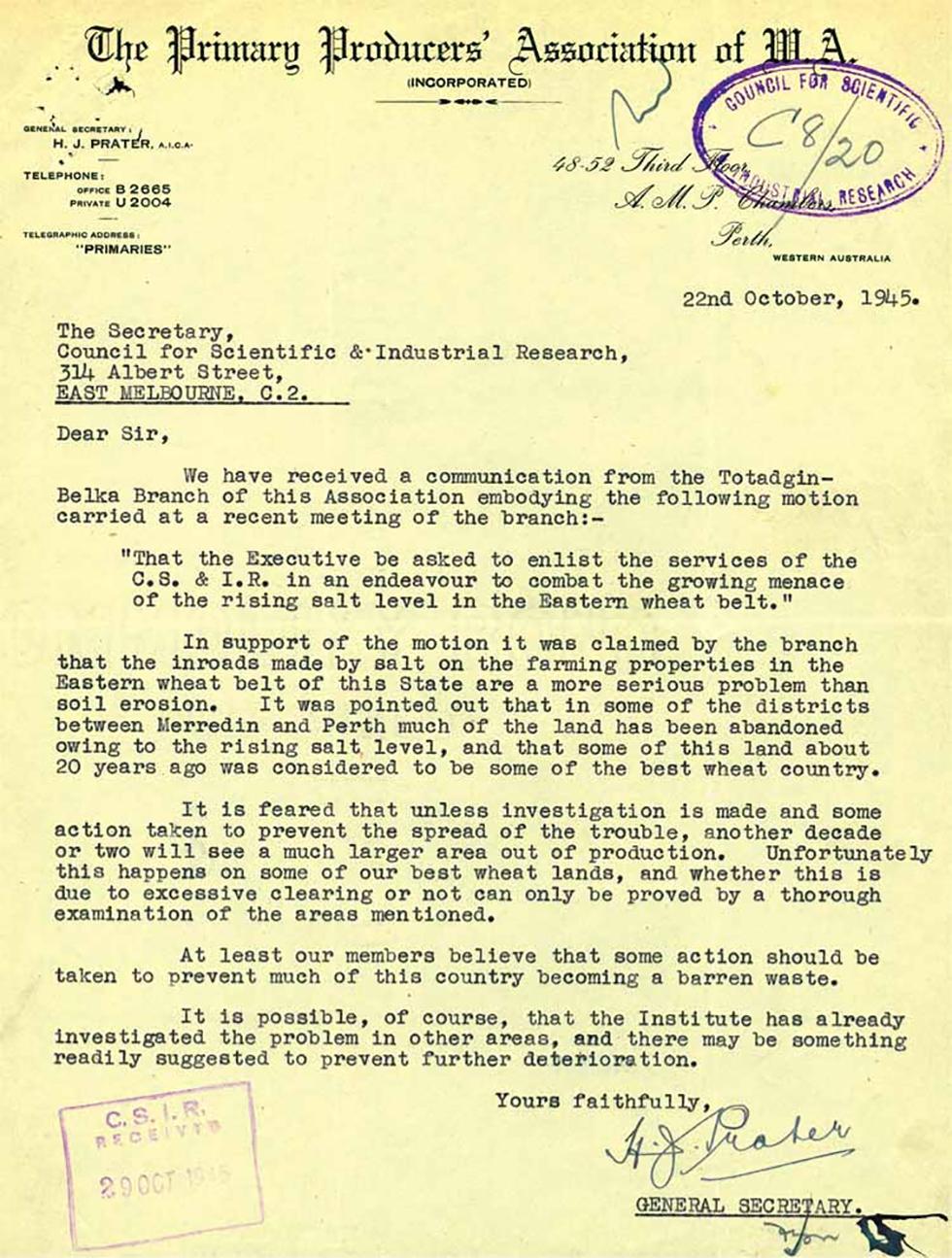
Letter to the Secretary of the Council for Scientific & Industrial Research regarding salt levels in the Eastern wheat belt.
Aboriginal and Torres Strait Islander people should be aware that the National Archives' website and collection contain the names, images and voices of people who have died.
Some records include terms and views that are not appropriate today. They reflect the period in which they were created and are not the views of the National Archives.


Letter to the Secretary of the Council for Scientific & Industrial Research regarding salt levels in the Eastern wheat belt.
[Letterhead for 'The Primary Producers' Association of W.A. (INCORPORATED)’.]
[Stamped in purple ink 'COUNCIL FOR SCIENTIFIC & INDUSTRIAL RESEARCH' with handwritten reference number 'C8/20'.]
48.52 Third Floor,
A.M.P. Chamlon,
Perth.
WESTERN AUSTRALIA
22nd October, 1945.
[Addressed to:] The Secretary,
Council for Scientific & [and] Industrial Research,
314 Albert Street,
EAST MELBOURNE, C.2. [Underlined.]
Dear Sir,
We have received a communication from the Totadgin-Belka Branch of this Association embodying the following motion carried at a recent meeting of the branch:-
"That the Executive be asked to enlist the services of the C.S. & I.R. in an endeavour to combat the growing menace of the rising salt level in the Eastern wheat belt."
In support of the motion it was claimed by the branch that the inroads made by salt on the farming properties in the Eastern wheat belt of this State are a more serious problem than soil erosion. It was pointed out that in some of the districts between Merredin and Perth much of the land has been abandoned owing to the rising salt level, and that some of this land about 20 years ago was considered to be some of the best wheat country.
It is feared that unless investigation is made and some action taken to prevent the spread of the trouble, another decade or two will see a much larger area out of production. Unfortunately this happens on some of our best wheat lands, and whether this is due to excessive clearing or not can only be proved by a thorough examination of the areas mentioned.
At least our members believe that some action should be taken to prevent much of this country becoming a barren waste.
It is possible, of course, that the Institute has already investigated the problem in other areas, and there may be something readily suggested to prevent further deterioration.
Yours faithfully,
[Handwritten signature:] H. J. Prater
GENERAL SECRETARY. [Underlined.]
[Stamp, purple ink, reads: 'C.S.I.R. RECEIVED 29 OCT 1945'.]
[Illegible handwritten annotation.]
Learn how to interpret primary sources, use our collection and more.
